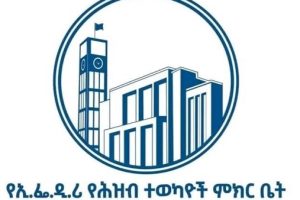
The House of Peoples’ Representatives has been making critical and essential decisions since Prime Minister Dr. Abiy Ahmed took office. Last Thursday, it also made a very important resolution by passing a new refugees’ law. It was adopted in line with the United Nations’ Global Compact on Refugees that was approved by world leaders in December 2018.
The law allows the social and economic inclusion of refugees: the rights to live out of camps, integrate into the labor market, (find jobs, engage in formal income generating activities and earn wages), access to fewer government services such as health, education and financial services including bank accounts, obtain driver licenses as well as legally register for life events.
It is a common phenomenon that from every corner of the world, people are obliged to flee from countries of their birth and seek asylums in foreign countries in search of better life and safety. Especially, with a growing political instability, various acts of aggression, combined with environmental change and economic deprivation, these days people are becoming more refugees than ever before.
Unluckily, for the reason that they are assumed as causes for social crisis and considered as economic burden rather than opportunity, in more cases, the refugees are obliged to be restricted in camps with relatively limited economic opportunities. The reality, however, is contrary to this.
As history shows and it is observed, when refugees are allowed to work, they have the potential to hugely contribute to the host countries – as employers, employees, researchers and innovators. Unarguably, the United States of America was created and built up its successes by immigrants who have applied their skills and knowledge in the labor markets.
Similarly, the countless economic benefits that many of developed countries have reaped from welcoming refugees are the other manifestations for the irreplaceable contribution of refugees. It is undeniable fact that Ethiopia is a country with a long history of hosting refugees.
The people have a tradition of helping those in greatest need. Even these days, the nation is a safe haven for hundreds of thousands of asylum seekers who fled from their country of birth due to various reasons and seeking safety in it. The number of refugees flown into the country has steadily been showing increment; and currently over 900,000 registered refugees are residing in camps situated across the country. Ethiopia believes that further than being a legal duty, protecting and helping refugees is a moral responsibility of each hosting countries.
That is why in times when anti-refugees view is amplified loudly and unscrupulous actions are taken by most developed countries, it has shown its commitment by adopting the law. This makes the country exemplary and the decision timely – granting refugees the opportunity to be better integrated into society and betterment their lives.
The enactment, apart from making refugees self-reliant and enabling them lead normal life, it would provide them with greater dignity, security, and workplace protections. Thereby it contributes significant social and economic rewards to the country through their professional credentials and skills. As well, in every possible way, refugees’ law should be applicable in a manner align to legitimate national security; protect the interests of social and economic of the native people.
Herald January 23/2019




